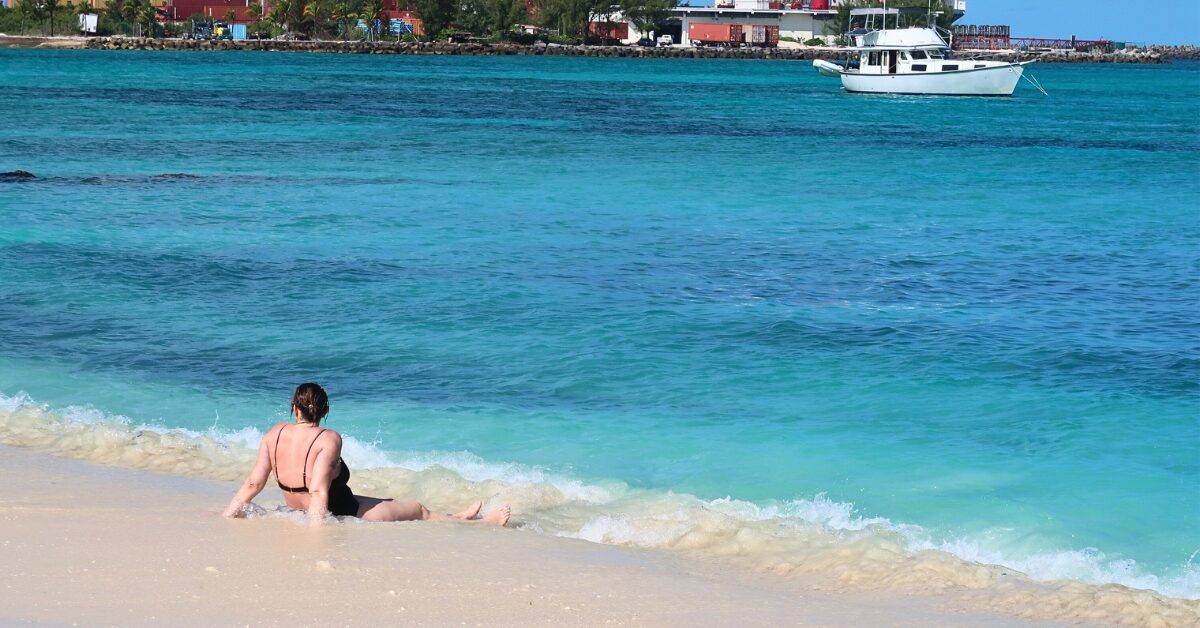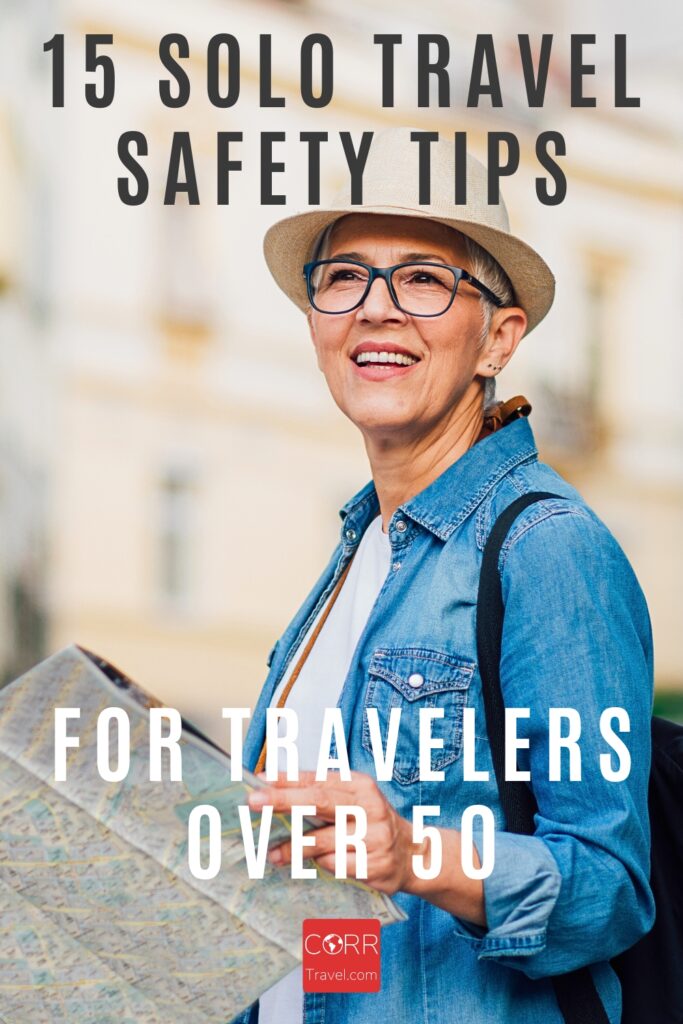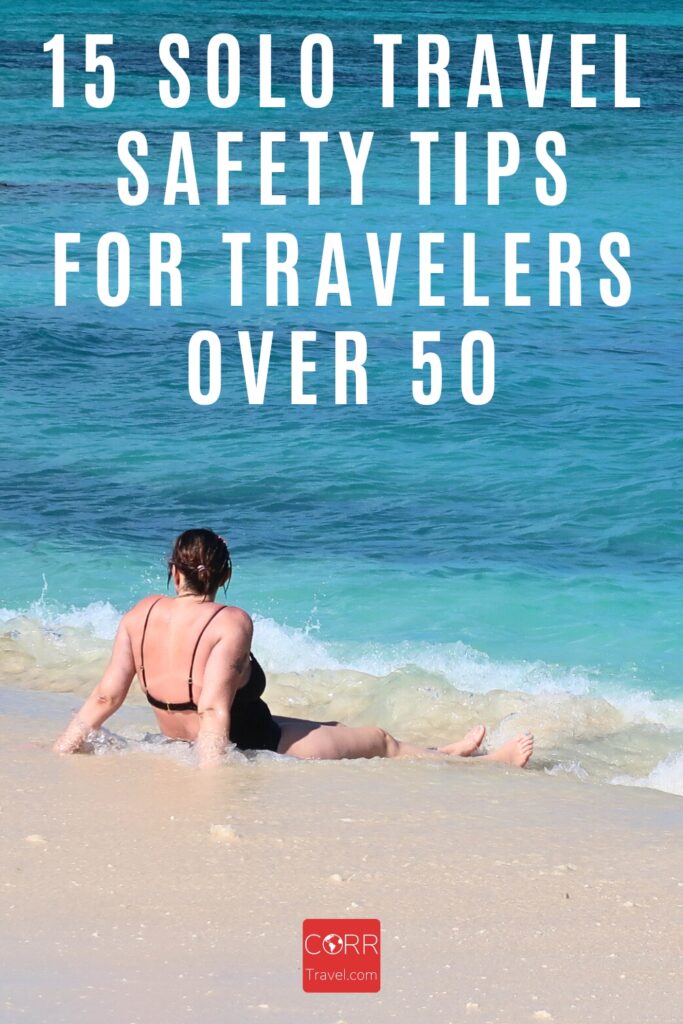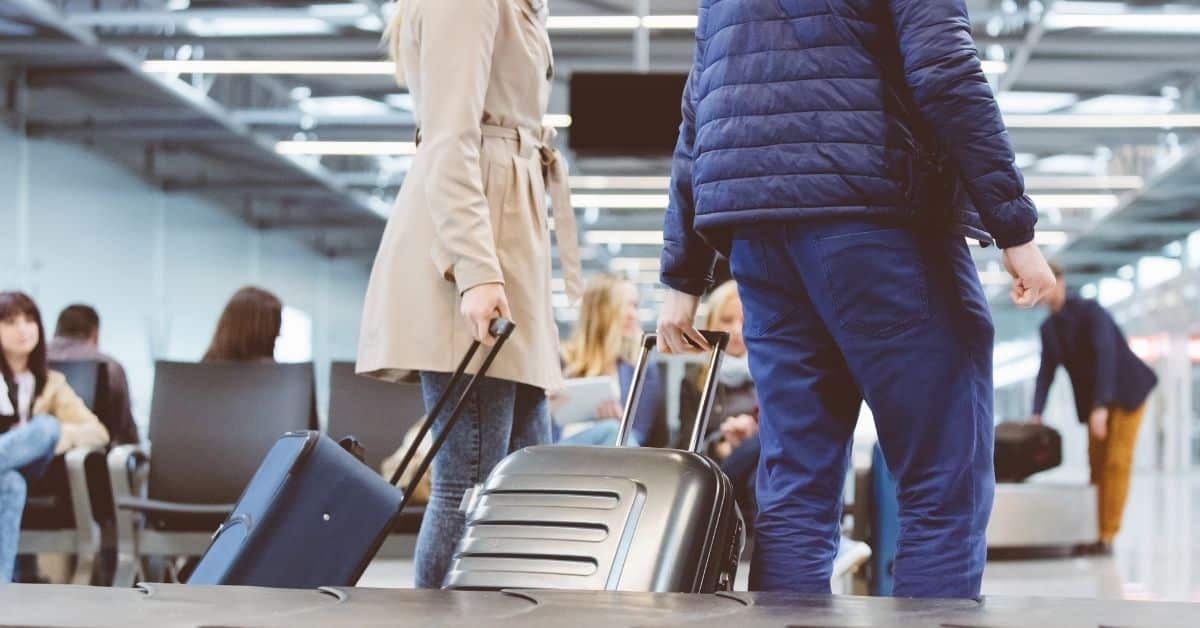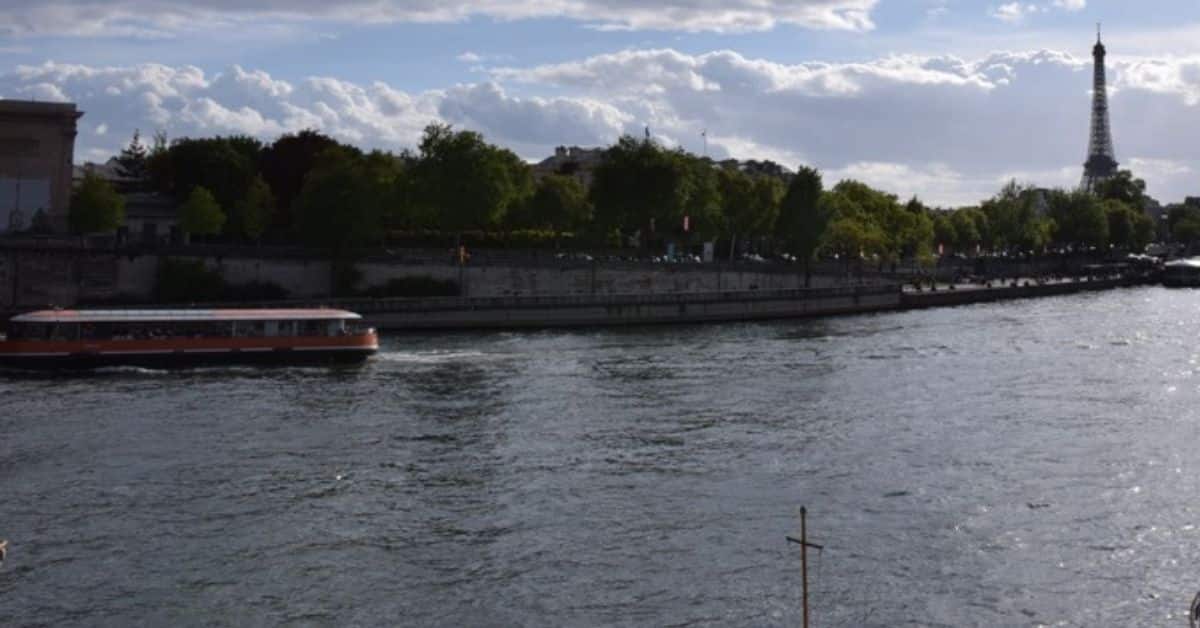15 Solo Travel Safety Tips for Fearless Travel Over 50
Whether you’re an experienced solo traveler or traveling alone for the first time, traveling alone as a woman or man, or traveling alone internationally or domestically, here are 15 essential solo travel safety tips for all solo travelers to travel by. They can make or break your travel experience.
Like this? Share it with others!
Solo Travel Safety Importance
Solo travel is on the rise, but not just for the young. Solo travel over 50 is one of the highest rising travel demographics, especially for women.
Traveling alone already comes with extra challenges. If you’re over 50, you may also be dealing with more medical or physical issues. I should know. In my mid-50’s, travel can hurt my body in ways unexperienced when I first started traveling solo almost three decades ago.
Therefore, it’s important to stay abreast of the best solo travel safety and health tips to ensure I have the best solo trip possible. The more I do to prepare and travel safely, the more I am likely to look forward to planning another solo trip!
This is why I am providing my 15 essential solo travel safety tips with you so you, too, can secure and worry-free solo travel over 50 experience.
15 Essential Solo Travel Safety Tips
Pre-Trip Safety Preparation
1 – Research the safety reputation of your destination
- Access travel advisories, but also find resources (friends, travel bloggers, etc.) who have recently been there and get their feedback. Sometimes travel advisories and the news outlets sensationalize events (think “If it bleeds, it leads” attention-getting and money making tactics that may be overkill) to scare people. Do your full research to be assured it meets your comfort level before making any bookings.
- Know the location of the nearest embassies and consulates in all destinations.
- Establish an emergency plan should you need to evacuate for any reason (e.g., weather or force majeure).
2 – Inform trusted persons with your travel plans
- Whether by an app, email, or texting, share a copy of your passport, travel itinerary and all reservations (plane, train, accommodations, tours, etc.), travel insurance, and any other pertinent itinerary items to at least one person before you leave so he/she has your complete solo travel schedule. If you have no one to share with, share it with your employer, attorney or other professional you can trust.
- Likewise, ensure all of the above documents and emergency contacts are downloaded to your mobile device(s) before leaving on your solo trip and stored in a backup location should you lose your device(s). Emergency contacts should include at least the nearest embassy or consulate office, your accommodations, credit card companies, banks, and health and travel insurance company.
3 – Make copies of important documents
- Like number 2 above, keep a copy of your passport, important legal and financial documents, etc. in more than one secure in more location you can access while traveling in case of an emergency at home.
- In addition to managing mail, pets, watering plants or other, designate someone to have access your personal and/or legal records should you need assistance managing home and personal items in case of an emergency like an evacuation, illness, or go into the hospital during your solo travel.
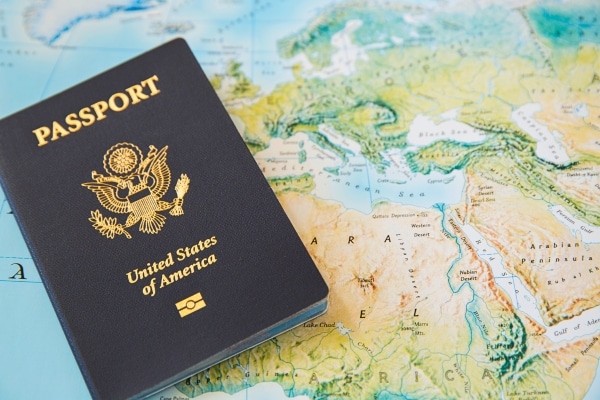
4 – Buy health and travel insurance
- Obtain comprehensive health and travel insurance coverage for all countries you will be visiting and make sure it covers any specific medical conditions you may have and expatriation services.
- Pack necessary medications and a first aid kit, and pack enough prescriptions to cover more than your trip itinerary in case your return is delayed.
- If your prescriptions are in unlabeled travel containers, bring the prescription details in writing (name, dosage, etc.), and bring extra written prescriptions from your doctor with you, if possible.
- Research medical facilities and emergency services at your destination. Consult your accommodations for any assistance.
5 – Book the right accommodations
- Choose only reputable and secure accommodations. Read the reviews and use Google street views to observe the outside and surroundings to get a better feel for the accommodations.
- Don’t be afraid to touch base with the establishment and ask questions in advance.
- Request rooms on the highest possible floor with good security measures and away from elevators and major foot traffic.
- Always keep your door locked, and do not feel obligated to open the door to anyone. Call the front desk, if need be, before opening your door.
6 – Increase mobility and transportation safety
- Research the right items and clothing to pack for each destination and anticipated activities. For example, bring comfortable walking shoes if you’ll be walking a lot.
- Pack light. If you can’t manage your luggage yourself, your bringing too much. Traveling carry-on only is best to prevent unwanted injuries as well as saving time in airports and money on baggage fees.
- Always carry travel essentials, like medications and glasses, in your carry-on so they are always with you. Likewise, keep essentials in your day bag when you’re out and about daily.
- Plan your trip with day time arrivals at all locations.
- Research safe transportation options at your destination, including reading reviews and asking for recommendations. If you need special services, book them in advance for no last minute surprises.
- Use licensed and reputable transportation services. Again, your hotel may be able to provide assistance.
- Be cautious when using public transportation, particularly during heavy travel times and at night. If unsure, call a rideshare or taxi.

More Solo Travel Tips
- Top 20 Tips to Travel Carry-On Only
- Expert Tips on Planning a Solo Road Trip
- What to Know When Going to the Beach Alone
- 10 Benefits of Solo Travel Over 50
Safety While Traveling Solo
7 – Stay connected
- Regularly check in with family and/or friends back home. Have pre-arranged check-in times so they may know if something may be wrong if they don’t hear from you as scheduled.
- Share any changes you make to your previously shared itinerary.
- Notify them immediately should you encounter an emergency situation.
8 – Secure your personal belongings
- Keep your valuables and important documents locked in your hotel or hostel room safe.
- Use a money belt, neck wallet, or hidden pouch for cash and cards.
- Carry a hands-free, mono-sling bag that can be adjusted to face front or back on your body for crowded areas.
- Avoid displaying expensive jewelry or gadgets, and use gadgets and technology only as needed (e.g., don’t talk needlessly on your mobile phone).
9 – Know your surroundings
- Be aware of your surroundings at all times.
- Don’t get carried away taking photos or videos that may put yourself in danger.
- Avoid deserted or poorly lit areas, especially at night.
- Trust your instincts and avoid areas that may seem unsafe, even if they are highly populated.
10 – Blend in with the locals
- Dress appropriately to respect local customs and norms.
- Don’t wear flashy jewelry or display expensive gadgets. The more expensive belongings you show, the more you draw attention to yourself.
- Learn at least the basic phrases in the local language in addition to using a translation app. These not only improve your travel experience but also increase safety.
- Observe and mimic local behaviors for added safety.
11 – Use technology for safety
- Install safety and navigation apps on your smartphone.
- Share your travel plans with a tracking app or friends and family.
- Stay connected with reliable Wi-Fi or mobile data options like a SIM or eSIM card.
- Always keep your devices charged, and bring an external mobile charger and travel adapter(s) (on international travel) with you to ensure your mobile devices don’t die when out and about.
12 – Be cautious with personal information
- Limit the amount of personal information you share online, on social media, and with strangers no matter how friendly or familiar they may seem.
- Be cautious when using public Wi-Fi networks, which are best only for accessing maps, information, or other non-personal information.
- Always use a VPN service when accessing private information or accounts, no matter where you are.

13 – Use trustworthy local advice
- Seek recommendations and advice from trusted sources, which can include your hotel or tour guide(s), local tourism office and tourist information centers.
- Hotels, tourism offices and centers should also be able to provide a good walking map with local tourist information for easier navigation.
- Use reputable tour operators with good reviews, like those found on CORR Travel, for guided activities or tours.
14 – Practice smart money handling
- Keep an emergency stash of cash and extra credit card separate from your daily wallet. Use the safe in your hotel room, if available, to store your extra funds and credit cards.
- Carry only the necessary cash, credit card and ATM card for daily expenses and emergencies.
- Use ATMs in secure, well-lit areas only. Cover the ATM keypad when inputting your debit PIN.
15 – Trust your instincts and stay mindful
- Listen to your intuition and gut feelings to make safe and informed decisions.
- Don’t be pressured by others to push yourself beyond your comfort limit.
- Know your personal alcohol consumption limits and never leave your drinks unattended.
- Know your physical and emotional limits. If you feel you are pushing yourself too hard, slow down and change your itinerary, if need be.
- Stay rested. As older travelers, we don’t have that ‘bounce back’ we used to after a long travel day or night out. Make sure your body has time to recoup during your travel as well as after your return home.
Final thoughts…
The more you travel solo over 50, the more the above solo travel safety tips will feel automatic and familiar.
Never let anyone talk you out of not using any of your safety tips. It’s your safety, and there’s nothing more important than that during travel.
With your travel experience growing, you may find yourself adding a new safety tip or two to the list.

